M.Tech Programmes

1. M.Tech Thermal Engineering
The programme offered in collaboration with INTEL Corporation, CA, USA, caters to the growing demand for thermal management professionals by acquainting students with basic thermal science subjects like advanced heat and mass transfer, incompressible fluid flow, applied thermodynamics, numerical methods, and measurements in thermal engineering. Specialisation is offered in Electronic Cooling, Gas Dynamics, and Computational Fluid Dynamics complying with commercial requirements. Industrial collaborations to render students with application-oriented training and mentorship on real-time projects are the major highlights of the programme. The programme also offers guaranteed internships and placements in international corporate sectors such as INTEL Corporation and the like.
Highlights
- Direct training by experts from industry like INTEL, in designing electronic cooling components using ANSYS Icepak.
- Opportunity to work in relevant industries (INTEL, Microsoft) for the final project.
- Internships at relevant industry sites.
- State of the art simulation capabilities – ANSYS Icepak/Solidworks/Matlab
Student Intake- 18 nos
Programme Educational Objectives (PEO)
Prepare graduates with sound fundamental knowledge and advanced research knowledge in the field of thermal engineering, especially in the field of electronic cooling and make them capable of effectively analysing and solving the problems associated with cooling challenges of electronic components.
Prepare the graduates with core competency to be successful in industry, academia or research laboratory with a strong understanding and ability to analyse problems, understand the technical requirements, design, and create and deliver effective engineering solutions.
Prepare graduates for excellent careers in Thermal Engineering with specialisation in electronic cooling or related fields by utilising their knowledge and contributing as exceptional professionals, as well as encouraging a sense of entrepreneurship.
Programme Specific Outcomes (PSO)
Apply knowledge of maths, science, and engineering with a multidisciplinary approach to identify, formulate, and solve the problems faced by the electronic cooling industry to realise its hardware design potential.
Ability to perform research with the application of advanced knowledge in thermal management of electronic components to develop novel cooling solutions which address the cooling challenges of electronic components.
Work effectively in a team to design components, systems, and processes to meet desired goals within realistic economic, environmental, social, political, ethical, health and safety, manufacturability and sustainability constraints using advanced digital/simulation tools like ANSYS ICEPAK.
Programme Outcomes (PO)
Engineering Knowledge
Apply the knowledge of mathematics, science, engineering fundamentals, and an engineering specialisation to the solution of complex engineering problems.
Design / Development of Solutions
Design solutions for complex engineering problems and design system components or processes that meet the specified needs with appropriate consideration for public health and safety and cultural, societal, and environmental considerations.
Conduct Investigations of Complex Problems
Use research-based knowledge and research methods, including design of experiments, analysis and interpretation of data, and synthesis of the information to provide valid conclusions for complex problems.
Modern Tool Usage
Create, select, and apply appropriate techniques, resources, and modern engineering and IT tools, including prediction and modelling, to complex engineering activities with an understanding of the limitations.
The Engineer and Society
Apply reasoning informed by contextual knowledge to assess societal, health, safety, legal and cultural issues and the consequent responsibilities relevant to professional engineering practice.
Environment and Sustainability
Understand the impact of professional engineering solutions in societal and environmental contexts and demonstrate the knowledge of and need for sustainable development.
Ethics
Apply ethical principles and commit to professional ethics and responsibilities and norms of engineering practice.
Individual and Teamwork
Function effectively as an individual and as a member or leader in diverse teams and in multidisciplinary settings.
Communication
Communicate effectively on complex engineering activities with the engineering community and with society at large, such as being able to comprehend and write effective reports and design documentation, make effective presentations, and give and receive clear instructions.
Life-long Learning
Recognise the need for and have the preparation and ability to engage in independent and lifelong learning in the broadest context of technological change.
2. M.Tech Materials & Manufacturing Technology
The programme focuses on the crucial aspects of materials as well as manufacturing. Students of the programme learn about processes including forming, joining, additive manufacturing, and smart manufacturing. It also offers insights on emerging fields like AI for Manufacturing to help students build futureproof careers. Along with the manufacturing processes, students get in-depth understanding of composite materials, additive materials, biomaterials etc.

Highlights
- Opportunity to work at the National Aerospace Laboratory and Titan industries for final semester projects
- Center of Excellence for pioneering research in gold and silver alloys in collaboration with Titan
- State of the art simulation capabilities – Ansys/Solidworks/Matlab
Student Intake- 18 nos
Programme Educational Objectives (PEO)
Prepare graduates with a strong foundation in the fundamentals of advanced materials and manufacturing technologies, with a focus on new product and process development for various industrial applications.
Develop graduates who can conduct independent research and development (R&D) in materials and manufacturing technology, with a strong understanding and ability to design and implement sustainable and environmentally responsible solutions using data interpretation, design, experimentation, and analysis.
Prepare graduates for leadership roles in industry, academia, or government, with the ability to manage projects, teams, and resources effectively and encourage a sense of entrepreneurship.
Programme Specific Outcomes (PSO)
Apply advanced materials science and manufacturing principles to design, develop, and characterise novel materials and processes with tailored properties for specific applications and realise the dream of India to establish a world-class leader in manufacturing.
Employ advanced manufacturing techniques to fabricate high-performance materials and components with desired microstructures and functionalities. Utilise computational tools to simulate materials’ behaviour, predict performance, and optimise manufacturing processes.
Conduct R&D to explore novel materials and manufacturing processes for advancing the field. Communicate technical findings through presentations, publications, and reports for diverse audiences. Collaborate with multidisciplinary teams to address complex challenges and contribute to innovative solutions.
Programme Outcomes (PO)
Engineering Knowledge
Apply the knowledge of mathematics, science, engineering fundamentals, and an engineering specialisation to the solution of complex engineering problems.
Design / Development of Solutions
Design solutions for complex engineering problems and develop system components or processes that meet the specified needs with appropriate consideration for public health and safety and cultural, societal, and environmental considerations.
Conduct Investigations of Complex Problems
Use research-based knowledge and research methods, including design of experiments, analysis and interpretation of data, and synthesis of the information to provide valid conclusions for complex problems.
Modern Tool Usage
Create, select, and apply appropriate techniques, resources, and modern engineering and IT tools, including prediction and modelling, to complex engineering activities with an understanding of the limitations.
The Engineer and Society
Apply reasoning informed by contextual knowledge to assess societal, health, safety, legal and cultural issues and the consequent responsibilities relevant to professional engineering practice.
Environment and Sustainability
Understand the impact of professional engineering solutions in societal and environmental contexts and demonstrate the knowledge of and need for sustainable development.
Ethics
Apply ethical principles and commit to professional ethics and responsibilities and norms of engineering practice.
Individual and Teamwork
Function effectively as an individual and as a member or leader in diverse teams and in multidisciplinary settings.
Communication
Communicate effectively on complex engineering activities with the engineering community and with society at large, such as being able to comprehend and write effective reports and design documentation, make effective presentations, and give and receive clear instructions.
Life-long Learning
Recognise the need for and have the preparation and ability to engage in independent and lifelong learning in the broadest context of technological change.
Eligibility
A BTech degree or equivalent in Mechanical Engineering with a minimum aggregate of 60%.
Selection Procedure
GATE-qualified candidates are admitted without any test and interview. The Non-GATE candidates will be called for a written test and/or interview. A candidate who has successfully cleared the entrance test shall be considered eligible for an interview.
Duration of the Programme
2 years
Criterion for Successful Completion of the Programme
The candidate has to earn the total number of credits required to complete the programme. The total number of credits is fixed as per the regulations of the MTech Programme of the University.


